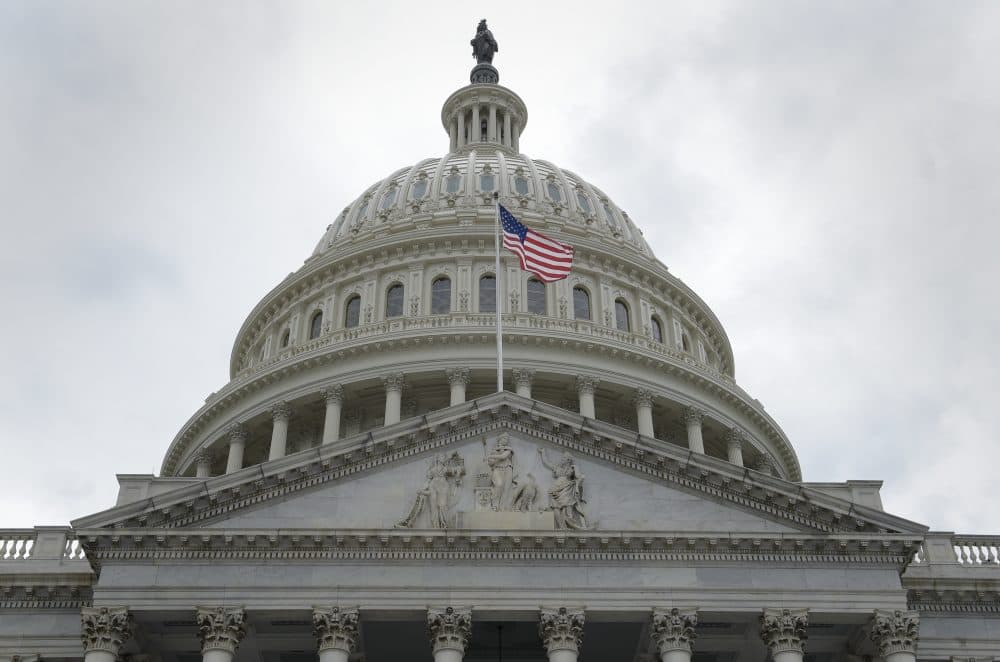Advertisement
Commentary
The Republican Health Care Bill Is An American Tragedy

Last Thursday, congressional Republicans voted to pass the American Health Care Act, the first step in fulfilling their pledge to “repeal and replace” former President Obama's health care law, the Affordable Care Act. This comes after attempts to pass an earlier version of the Republican health care bill imploded about a month ago. If the new version of the bill becomes law, it stands to reshape both the landscape of American health and the health care industry -- one-sixth of our economy.
While the full scope of the changes the GOP health care redux would bring are still uncertain — the bill was passed before the nonpartisan Congressional Budget Office had a chance to evaluate it — the replacement health care plan will likely challenge Medicaid expansion, open the door to denying coverage to people with pre-existing conditions, and ultimately cause millions of Americans to lose health coverage.
The Affordable Care Act, as it stands, is more quilt than whole cloth -- a patchwork of legislative deals struck between interest groups, overseen by a range of stakeholders.
It is perhaps not surprising, then, that the bill is opposed by nearly all major medical and public health associations in the United States, including the American Medical Association, the American College of Cardiology, the American Public Health Association and the AARP. Their opposition is warranted. Replacing the Affordable Care Act with the House-approved Republican health care plan would be an American tragedy, a tremendous step backward that we should collectively reject.
Given that the Affordable Care Act debate has spanned almost a decade, and the broader debate over health care reform in America stretches back to the middle of the last century, it is easy to wonder: Why is this such a fraught issue in the United States? It seems to me that there are two fundamental reasons.
First, America has not yet decided, at the level of basic national values, why it is important to offer universal health coverage to its citizens. This may sound strange. After all, is not the desire to keep ourselves and our family healthy a sufficient reason to support legislation designed to do just that? Perhaps, to a limited extent, it is. But a national health care system is more than a series of measures that shield us from disease and heal us when we are afflicted. It is a statement. It says that we, as a country, have chosen to care for each other in times of need, not just because it is in our self-interest to do so, but because to do otherwise would be a betrayal of our core ideals as Americans. The American health care debate, for all its many iterations over the years, has never been presented to us in these terms — as an issue that is, before anything else, a moral one. Because the critical question of the law’s raison d'être has remained unresolved, the Affordable Care Act has been vulnerable to the kind of attacks and distortions we have seen leveled at it in recent years.
Second, American health care in its current form lacks a federal requirement providing for necessary health services — such as doctor and hospital visits — to be sustained through a single payer system, which would ensure that all receive coverage, regardless of the rules of a given local market. So far, we have seen no legislative push to create such a requirement, nor much political will to bring health care under the umbrella of a single authority, one that would be accountable for maintaining a universal coverage guarantee. The Affordable Care Act, as it stands, is more quilt than whole cloth — a patchwork of legislative deals struck between interest groups, overseen by a range of stakeholders. This is a far cry from where we need to be, if we are to have a durable, effective means of delivering health care in this country.
Each of these critiques speaks to what the Affordable Care Act truly requires: reform, and perhaps bolder re-imagination to tackle some of its foundational challenges. It does not, however, require hasty and reckless repeal. It requires careful improvement, carried out in good faith, with the intention of protecting health, not scoring political points.
Rather than giving us a bill that arises from a clear moral case for what health care in this country should be, the Republican Congress has produced what amounts to a moral catastrophe.
This is not likely to happen until we decide that health care truly is a right of citizenship — an extension of national values — and resolve to create a secure legislative framework to safeguard that right, now and in the future. The GOP health care bill does nothing to advance this vision. Rather than giving us a bill that arises from a clear moral case for what health care in this country should be, the Republican Congress has produced what amounts to a moral catastrophe.
News that the Senate may rewrite the bill, possibly tempering some of its more draconian features, provides mild reassurance. Perhaps the wave of public support for the Affordable Care Act can indeed give rise to its improvement so that one day, affordable and universal health coverage will become a non-negotiable norm in America.
